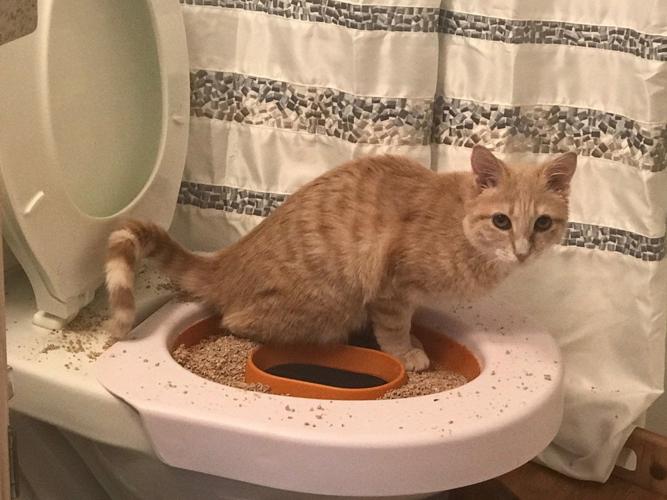Why Flushing Cat Poop Down Your Toilet Can Cause Problems - Recommendations for Safe Handling
Why Flushing Cat Poop Down Your Toilet Can Cause Problems - Recommendations for Safe Handling
Blog Article
Each person maintains their own thinking about How to Dispose of Cat Poop and Litter Without Plastic Bags.

Intro
As feline proprietors, it's important to be mindful of exactly how we throw away our feline buddies' waste. While it might appear hassle-free to purge cat poop down the bathroom, this technique can have detrimental effects for both the atmosphere and human wellness.
Alternatives to Flushing
The good news is, there are much safer and a lot more responsible ways to deal with pet cat poop. Consider the adhering to choices:
1. Scoop and Dispose in Trash
One of the most common method of throwing away feline poop is to scoop it right into a naturally degradable bag and toss it in the trash. Make sure to use a specialized trash scoop and get rid of the waste without delay.
2. Use Biodegradable Litter
Go with biodegradable feline clutter made from materials such as corn or wheat. These clutters are eco-friendly and can be securely gotten rid of in the trash.
3. Bury in the Yard
If you have a backyard, take into consideration hiding cat waste in a designated location far from vegetable yards and water resources. Be sure to dig deep enough to prevent contamination of groundwater.
4. Install a Pet Waste Disposal System
Buy an animal garbage disposal system especially made for feline waste. These systems utilize enzymes to break down the waste, minimizing odor and environmental influence.
Wellness Risks
In addition to ecological issues, flushing feline waste can additionally pose health threats to humans. Cat feces might contain Toxoplasma gondii, a parasite that can cause toxoplasmosis-- a possibly severe health problem, especially for pregnant women and individuals with damaged immune systems.
Environmental Impact
Purging feline poop introduces dangerous pathogens and bloodsuckers right into the water, presenting a substantial risk to water ecosystems. These contaminants can adversely affect aquatic life and compromise water top quality.
Verdict
Liable animal possession extends past providing food and sanctuary-- it likewise includes appropriate waste administration. By avoiding flushing feline poop down the toilet and selecting alternative disposal methods, we can decrease our ecological footprint and shield human health.
Why Can’t I Flush Cat Poop?
It Spreads a Parasite
Cats are frequently infected with a parasite called toxoplasma gondii. The parasite causes an infection called toxoplasmosis. It is usually harmless to cats. The parasite only uses cat poop as a host for its eggs. Otherwise, the cat’s immune system usually keeps the infection at low enough levels to maintain its own health. But it does not stop the develop of eggs. These eggs are tiny and surprisingly tough. They may survive for a year before they begin to grow. But that’s the problem.
Our wastewater system is not designed to deal with toxoplasmosis eggs. Instead, most eggs will flush from your toilet into sewers and wastewater management plants. After the sewage is treated for many other harmful things in it, it is typically released into local rivers, lakes, or oceans. Here, the toxoplasmosis eggs can find new hosts, including starfish, crabs, otters, and many other wildlife. For many, this is a significant risk to their health. Toxoplasmosis can also end up infecting water sources that are important for agriculture, which means our deer, pigs, and sheep can get infected too.
Is There Risk to Humans?
There can be a risk to human life from flushing cat poop down the toilet. If you do so, the parasites from your cat’s poop can end up in shellfish, game animals, or livestock. If this meat is then served raw or undercooked, the people who eat it can get sick.
In fact, according to the CDC, 40 million people in the United States are infected with toxoplasma gondii. They get it from exposure to infected seafood, or from some kind of cat poop contamination, like drinking from a stream that is contaminated or touching anything that has come into contact with cat poop. That includes just cleaning a cat litter box.
Most people who get infected with these parasites will not develop any symptoms. However, for pregnant women or for those with compromised immune systems, the parasite can cause severe health problems.
How to Handle Cat Poop
The best way to handle cat poop is actually to clean the box more often. The eggs that the parasite sheds will not become active until one to five days after the cat poops. That means that if you clean daily, you’re much less likely to come into direct contact with infectious eggs.
That said, always dispose of cat poop in the garbage and not down the toilet. Wash your hands before and after you clean the litter box, and bring the bag of poop right outside to your garbage bins.
https://trenchlesssolutionsusa.com/why-cant-i-flush-cat-poop/

I found that piece of writing about Can You Flush Cat Poo or Litter Down the Toilet? when surfing the search engines. In case you appreciated our page if you please don't forget to share it. Thanks a lot for going through it.
Phone Report this page